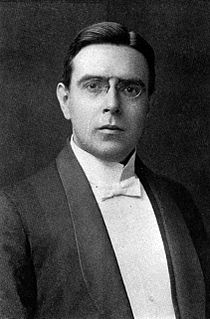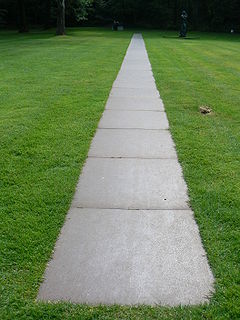A Quote by Frank Lloyd Wright
Art for art's sake is a philosophy of the well-fed.
Quote Topics
Related Quotes
It is a truism that as long as man loves but himself and his art he can never attain to the full measure of manhood or reach the sublimest heights of his art. He must seek to love men as brothers and art, not for the sake of art itself, but art as a means toward bringing all men up to that verdant plateau where their souls may be fed in very rejoicing in all that is true, beautiful, and abiding.
Warhol and other Pop artists had brought the art religion of art for art's sake to an end. If art was only business, then rock expressed that transcendental, religious yearning for communal, nonmarket esthetic feeling that official art denied. For a time during the seventies, rock culture became the religion of the avant-garde art world.
It is a thoughtless and immodest presumption to learn anything about art from philosophy. Some do begin as if they hoped to learnsomething new here, since philosophy cannot and should not do anything further than develop the given art experiences and the existing art concepts into a science, improve the views of art, and promote them with the help of a thoroughly scholarly art history, and produce that logical mood about these subjects too which unites absolute liberalism with absolute rigor.
Art makes people do a double take and then, if they're looking at the picture, maybe they'll read the text under it that says, "Come to Union Square, For Anti-War Meeting Friday." I've been operating that way ever since - that art is a means to an end rather than simply an end in itself. In art school we're always taught that art is an end in itself - art for art's sake, expressing yourself, and that that's enough.






































